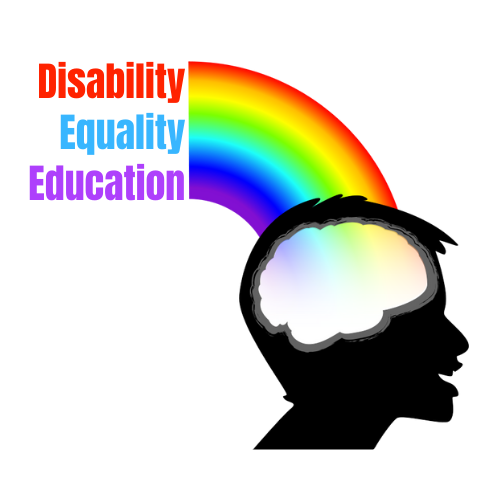Frequently Asked Questions
about
Disability Inclusive Curriculum
Q: Will introducing a Disability Inclusive Curriculum require more time, class periods, subjects or changes in my lesson planning?
A. No! Our resources help infuse disability topics into what you are already teaching. This makes conversations about disability easier across all subjects and grade levels. Going beyond awareness days, it teaches more appropriate perspectives about disability. DEE can help incorporate disability into all subjects including art, a calendar of events, and other areas.
For example: When teaching about Figurative Language idioms and metaphors or opportunities throughout the year you already celebrate such as Black History Month, Hispanic Heritage, Women's History Month, Presidents Day, Dr. Seuss Day, and so on. https://www.DisabilityEqualityEducation.org/disability-calendar-of-events.
Q. Will it involve more time in lesson planning to meet standards or align to Common Core?
A. No, all our lessons are aligned to Common Core Standards and include essential questions, objectives, vocabulary, and other components important to lesson planning.
Q. I am not versed in talking about disabilities, what do I need to know?
A. Introducing this curriculum does not require knowledge about specific disabilities, nor focus on impairments, but on recognizing disability as a social identity, similar to race, gender, or religion. Once you view disability as a natural part of diversity you will find many places to include it in your pedagogy.
Q. How can I prepare to introduce this?
A. DEE’s Professional Development can provide support and understanding from the experts who created it. An Educator Membership Area which includes Google Classroom drop-in sessions will provide opportunities to collaborate with peers and gain insight from experts.
Q. How can I be sure the books, lessons, and resources from DEE are appropriate and aligned with the mission behind Disability Inclusive Curriculum?
A. All created resources and recommended books on our website are vetted by disabled people. DEE can provide additional assistance with vetting or customizing other lessons. A list of posters that support disability representation and create a climate of belonging for all kids is also available.
Q. If there aren't many students with disabilities enrolled in my school or class, why is it important for non-disabled students to learn about this?
A. Disability Inclusive Curriculum is for all students. Learning about disability dispels myths, stigmas, and stereotypes and prevents misconceptions. It can help students without disabilities be comfortable when meeting people with disabilities and grow up with less prejudice.
Q. How do all students benefit from the inclusion of this Curriculum?
A. It’s important for all students to embrace all differences and cultures. Disability intersects across all types of diversity. Our lessons are to be taught in general education classrooms. Where all learners learn together.
